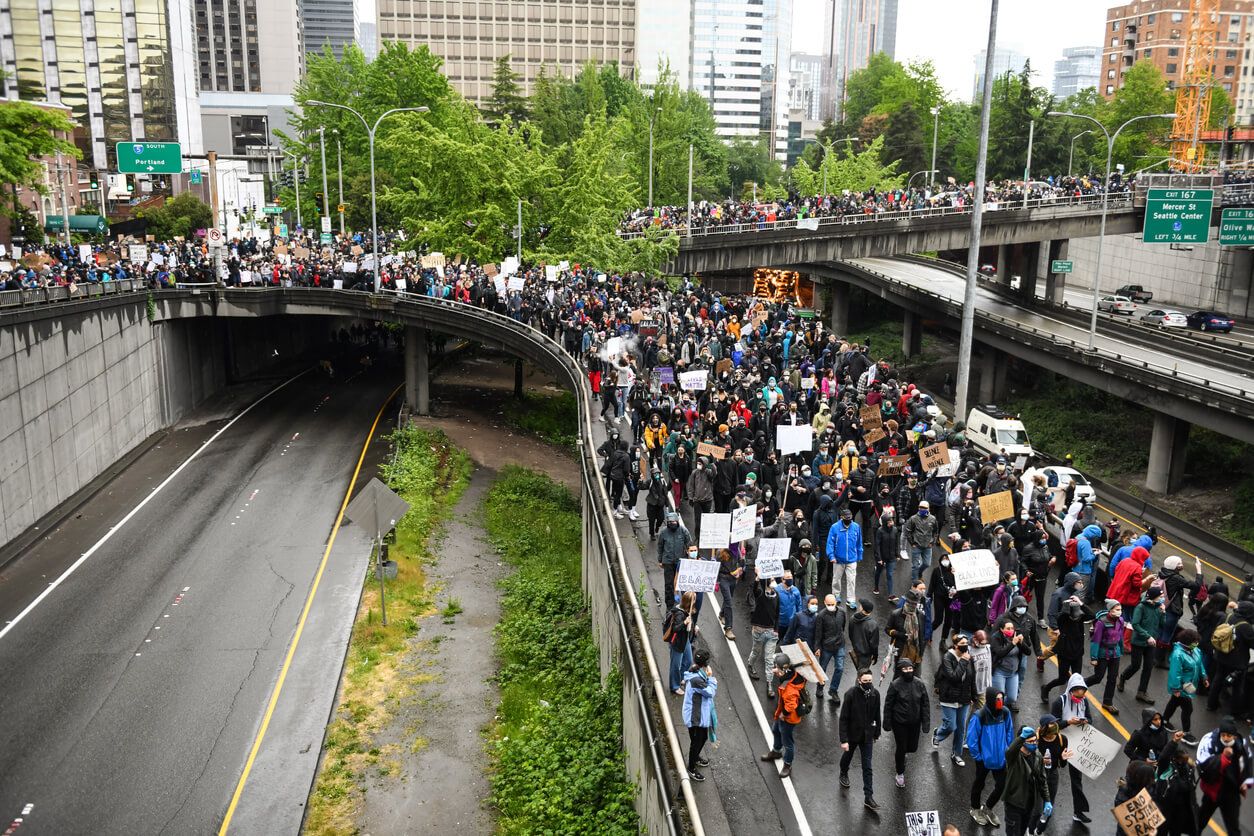A person can get arrested and charged with violations of state or federal law for rioting and property damages during a protest in Seattle. The penalties can be severe, and under Washington law, some activities are felonies.
If you face criminal charges as the result of a protest, a Seattle federal criminal defense attorney can help protect your legal rights. Jennifer Horwitz Law can build a case for your defense and work with the prosecutor to try to resolve the charges.
State Law That Can Apply to Charges of Rioting and Property Damage During a Protest
One of the state statutes that can apply to the situation of protest-related rioting and property damage is RCW 9A.84.010, Criminal Mischief. The prosecutor would have to prove that a person acted with at least three other people to knowingly or unlawfully use or threaten to use force against another person or property.
The statute says that Criminal Mischief is a gross misdemeanor. If the person has a deadly weapon, the action can be a class C felony.
Other possible charges in RCW 9A.48, Arson, reckless burning, and malicious mischief; RCW 9A.52, Burglary and Trespass; and RCW 9A.56, Theft and Robbery. These charges can range from a misdemeanor, gross misdemeanor, Class A felony, Class B felony, and Class C felony.
Penalties for Convictions of Protest-Related Misdemeanors and Felonies
There is a wide range of punishment available to the sentencing judge in these cases. For example, some felonies convictions can result in penalties that include getting confined in a state correctional facility for up to 10 years and paying a fine as high as $20,000.
Gross misdemeanor convictions can send a person to the county jail for up to 364 days and result in an assessment of a fine up to $5,000. A standard misdemeanor can land a person in jail for up to 90 days with a fine as high as $1,000.
Federal Anti-Riot Law
The Federal Anti-Riot Act, 18 USC 2101, makes it illegal to use interstate or foreign commerce with the intent to:
- Participate or carry on in a riot
- Organize, encourage, promote, or incite a riot
- Commit a violent act during a riot
- Help anyone perform any of those things
The Act defines interstate or foreign commerce as using a telephone, television, radio, or telegraph. If a person talks on the phone or sends or reads a text, tweet, Instagram or Facebook posting or live stream or other social media on the phone related to the protest, the prosecutor could consider that as using interstate commerce and triggering the Federal Anti-Riot Act.
The penalties for a conviction under the Act include imprisonment for up to five years, or a fine, or both. If a person gets convicted or acquitted on the merits for the same actions under a state law, he cannot get prosecuted under the federal act.
Your liberty, criminal record, and money are at risk if you get charged with a crime for conduct during a protest. A criminal conviction could cause you to lose your job and not get considered for jobs you want for the rest of your life. Your dream college or university might be out of reach if you have a conviction on your record. Contact Jennifer today to get help in achieving the best possible outcome in your situation.
DISCLAIMER: This post is intended to share my perspective, insights, and some general information on various aspects of criminal law cases. It is not legal advice and is not intended to substitute for legal advice. You should consult an attorney to obtain legal advice for your individual situation and case.

